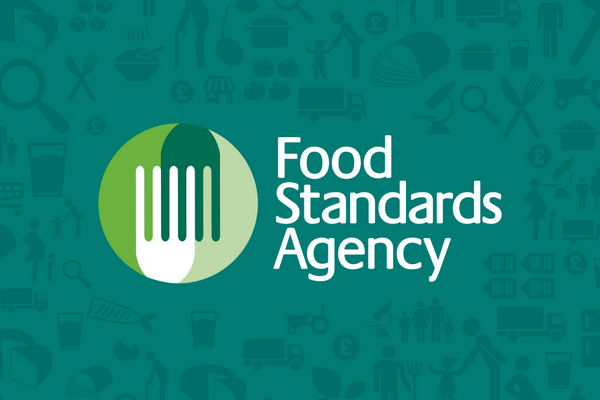The UK’s CBD industry has been growing at an impressive rate, with products ranging from supplements to beverages and skincare. However, this rapid growth has not been without challenges. One of the most significant obstacles comes in the form of regulation—specifically, how CBD food products are evaluated and approved by the Advisory Committee on Novel Foods and Processes (ACNFP) and the Food Standards Agency (FSA).
The Cannabis Trades Association (CTA), representing key industry players, has raised several important questions about the current regulatory approach. During a recent ACNFP meeting, the CTA posed critical questions on behalf of the industry, urging regulators to take a more transparent and fair approach, particularly when it comes to the Acceptable Daily Intake (ADI) of CBD products

Transparency and Fairness: Isolated CBD Isn’t the Whole Picture
At the heart of the CTA's concerns is the reference point being used to assess CBD products. Currently, the FSA and ACNFP have established an ADI of 10mg per adult per day. However, this limit is based solely on studies of isolated CBD, rather than the full spectrum and distillate products that make up a significant portion of the market. Full-spectrum and distillate CBD products contain a range of cannabinoids, terpenes, and other beneficial compounds that differentiate them from isolated CBD.
The CTA is asking: Why is isolated CBD being used as the benchmark for all CBD products? The ADI of 10mg was set using data from a single isolated CBD product, and applying this across the entire industry overlooks crucial differences between product types. This one-size-fits-all approach is a major cause of concern for businesses trying to navigate the regulatory landscape.
The Need for Consistent Regulatory Guidance
The CBD market in the UK is competitive, with companies of all sizes working hard to bring safe, innovative products to consumers. However, the CTA has noticed an inconsistency in how regulatory guidance is applied. Some companies appear to benefit from more direct regulatory support, giving them an advantage over smaller businesses that have to navigate the Novel Food process independently.
This leads to a significant imbalance in the market, where larger companies are better equipped to comply with regulatory requirements while smaller companies struggle. The CTA is questioning the fairness of this system, calling for equal access to regulatory resources and guidance for all companies. Only by providing a level playing field can the industry truly thrive.
Hypocrisy in the Application of Novel Food Regulations
One of the most contentious points raised by the CTA is the hypocrisy within the regulatory process. The industry was initially told that each CBD application would be judged on its own merits, based on the individual data provided. However, the imposition of a blanket ADI of 10mg contradicts this stance.
How can the ACNFP justify setting a standard based on one data set, while disregarding other scientific evidence?
Studies have indicated that much higher ADI limits could be safely applied, yet these findings have been largely ignored. This inconsistency is creating confusion and frustration within the industry, as companies are being held to standards that may not reflect the full body of scientific evidence available.

Where’s the Science? The Need for Evidence-Based Decision-Making
The CTA is also calling for more transparency in how the ADI was set. What specific scientific studies were used to determine the 10mg limit, and why aren’t other data sets being considered? The industry deserves access to the scientific summaries and conclusions that informed this decision. After all, if the ADI is going to be applied across the board, it needs to be backed by comprehensive and transparent evidence.
Moreover, individuals metabolise CBD differently based on various factors, such as weight, health conditions, and personal tolerance. The CTA is asking the ACNFP whether there will be any consideration for adjusting the ADI to account for these differences in future regulations. A more flexible approach could better reflect the diverse needs of consumers and the wide range of CBD products available on the market.
Looking Ahead: The Future of CBD Regulation in the UK
As the CBD industry continues to grow, it’s essential that regulations evolve alongside it. The CTA has asked the ACNFP to clarify its long-term strategy for adjusting the ADI in light of new research and data. Will this become an annual agenda topic? Regularly revisiting the ADI, based on the latest scientific developments, would ensure that regulations remain relevant and reflect the best available evidence.
In addition to this, the CTA is pushing for the ACNFP to consider a centralised application process that would streamline compliance for companies of all sizes. This would help smaller businesses compete on a more equal footing with larger companies, making the regulatory process more accessible and fair.
A Call for Change
The CTA is committed to leading the conversation on CBD regulations in the UK, advocating for transparency, fairness, and evidence-based decision-making. With so much at stake for the future of the industry, it’s crucial that regulators listen to the concerns of businesses and work collaboratively to create a more balanced regulatory environment.
The time for change is now. The CTA is calling on the ACNFP to answer these pressing questions and take a more inclusive, science-driven approach to regulating CBD products. By addressing these concerns, the ACNFP can help create a fairer, more transparent market where all businesses have the opportunity to thrive.










